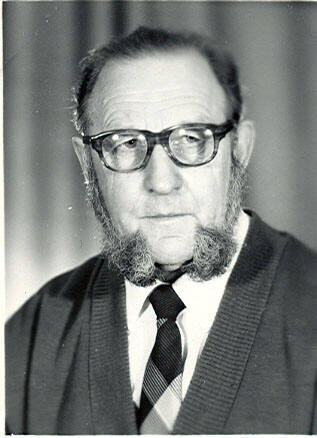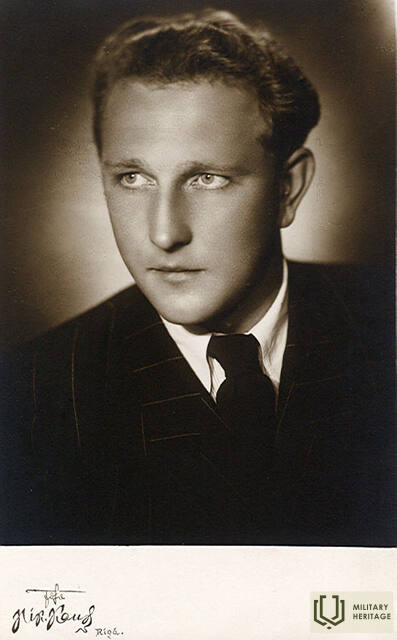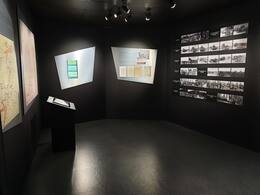Regional researcher Žanis Skudra receives 10 years in prison for "Diary of Occupied Latvia"
Žanis Skudra devotes all his free time to local history, all his vacations to traveling around Latvia. This is how he accumulated materials, took photographs, and created the "Book of Occupied Latvia Days", which is published by the Latvian National Foundation in Stockholm under the pseudonym Jānis Dzintars.
On June 7, 1978, Žani Skudra was arrested in Tallinn and in November of the same year, the Riga Supreme Court sentenced him to twelve years in prison for treason and espionage.
Žanis Skurda was born on June 19, 1924 in the former Vecauce parish (now Vadakste parish), in “Elguči” in Bileiķi, studied at the Vītiņi 6-year primary school and Auce secondary school in Vecauce parish, supplemented his knowledge at the University of Latvia, obtaining the qualification of a public instructor in chemical technology, worked at the Riga Experimental Plant of Biological Preparations, for some time also as a bus driver, but after retirement he farmed in his native “Elguči”. He worked on the Priedula collective farm in the construction brigade.
During World War II, he was not drafted into either the German or Russian armies due to poor health. After the war, he served in the Soviet Army, thus interrupting his secondary school education.
Since 1934, he has begun to collect and archive various information about Latvia - the fate of farmsteads, churches, historical buildings, pubs, mills and also nature. Žanis Skudra devotes all his free time to local history, all his vacations to traveling around Latvia. Thus, materials and photographs were collected, and the "Book of the Day of Occupied Latvia" was created, which is published by the Latvian National Foundation in Stockholm under the pseudonym Jānis Dzintars.
On June 7, 1978, Žanis Skudra was arrested in Tallinn and in November of the same year, the Riga Supreme Court sentenced him to twelve years in prison for treason and espionage, which he served in a camp in the Chusovaya district of the Perm region. In the fall of 1988, Žanis returned from detention to his native "Elguči" and continued to work on writing the history of Bileikai, but the work remained unfinished.
Žanis Skudra died on June 14, 1994 and is buried in the Lanku cemetery in Bileiķi.
Literary pseudonym - Makaris, Zeks, Dzintars, Jānis Dzintars
https://novadpetnieciba.saldus.lv/novadnieki/zanis-skudra/
https://vadakstesmantojums.saldus.lv/novadpetnieks-zanis-skudra/
https://vadakstesmantojums.saldus.lv/foto-arhivs/
https://vadakstesmantojums.saldus.lv/gramata/
Related timeline
Related objects
Ezere local history repository “Muitas Nams” (Customs House)
The Ezere Customs House is located in Ezere near the Saldus-Mažeikiai highway at the Latvian-Lithuanian border. The act of surrender of the German Army units ‘Kurzeme’ (Kurland) surrounded in the so-called ‘Courland Pocket’ was signed in this building on 8 May 1945. It is believed that World War II actually ended in Ezere. The customs house has an exhibit covering the events of the end of World War II and exhibits detailing the history of Ezere parish from ancient to modern days. In the morning of 7 May 1945, the commander of the Leningrad Front, Marshal L. Govorov, sent an ultimatum to the command of the army group ‘Kurzeme’ to lay down arms. The act of surrender was signed by the involved parties on May 8 and it detailed the procedure of surrender, weapons collection points, documents and information to be submitted and other practical measures.







